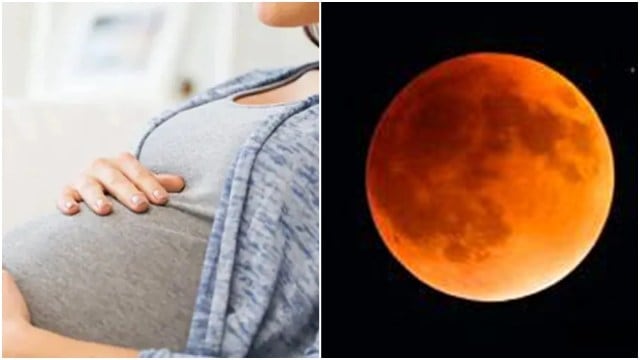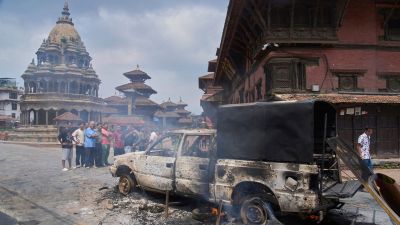📣 For more lifestyle news, click here to join our WhatsApp Channel and also follow us on Instagram
Gynaecologist narrates how family refused childbirth during blood moon Lunar Eclipse, took lot of convincing: ‘Grahan hai…aap aaj ke din rakhiye’
"I told them that we could lose the child. It took a lot of convincing to let us deliver the baby," Dr Sushma Mogri can be heard saying in the video.
 Here's why doctors stress the importance of scientific discretion (Photo: Getty Images/Thinkstock; Express Photo by Arul Horizon)
Here's why doctors stress the importance of scientific discretion (Photo: Getty Images/Thinkstock; Express Photo by Arul Horizon)It is not always easy when, as a doctor, you have to fight faith and convince people to adhere to discretion. Something similar happened with a doctor whose video on convincing a family to safely deliver their child during the recent Lunar Eclipse has been doing the rounds on social media. According to Dr Sushma Mogri, a Udaipur-based gynaecologist, the baby, eventually delivered healthy, was born after an emergency caesarean operation.
“This is a baby that has been delivered now, on the day of the Lunar Eclipse or Chandra Grahan. When the mother and family came to us, we told them that the woman requires an emergency operation. The unborn child’s upright position in the womb, coupled with a 10-day delay and the child’s pooping inside the womb, made the child’s heartbeat reach 90 beats per minute. But the family refused. Nahi madam, aaj grahan hai toh humein bilkul operation nahi karana. Aap aaj ke din rakhiye aur kal delivery karaiye. (No, ma’am, we don’t want the delivery done today. Keep her under observation today and deliver the child tomorrow, as today is an eclipse),” the doctor can be heard saying in the video.
She, however, took a stand and said that it wasn’t possible to delay any further. “I told them that we could lose the child. It took a lot of convincing to let us deliver the baby. The baby is healthy. So, if your doctor is also telling you about such a critical decision, don’t ignore,” she shared.
Taking a cue from this case in point, we reached out to experts to understand why medical advice is important to adhere to.
Dr Tripti Raheja, director of obstetrics and gynaecology at CK Birla Hospital, Delhi, concurred that, as a gynaecologist, she frequently encounters situations where patients’ cultural beliefs pose a risk to the safety of the mother or baby during childbirth.
“This case in particular highlights how deeply rooted traditions could have led to serious harm to the baby. The family’s hesitation in following the doctor’s advice for an urgent delivery indicates a worrying trend. As a gynecologist, I often see families influenced by cultural practices when it comes to childbirth, from refusing food or movement during an eclipse to delaying urgent procedures until the ‘inauspicious time’ has passed,” said Dr Raheja.
While respecting cultural sentiments is important, health decisions must never compromise evidence-based care, stressed Dr Raheja. “It’s important to understand that childbirth is something that we should not try to fit into a calendar or celestial events, and unnecessary delays of even a few hours can sometimes make the difference between a safe outcome and a complication,” said Dr Raheja.
 It is important to ensure a safe delivery (representative image) (Photo: Freepik)
It is important to ensure a safe delivery (representative image) (Photo: Freepik)
Dr Manish Machave, a consulting obstetrician, gynaecologist, and gynaecological endoscopic surgeon at Ruby Hall Clinic, Pune, stated that modern medicine and scientific evidence clearly demonstrate no link between lunar eclipses and risks to pregnancy or the unborn child.
View this post on Instagram
According to Dr Machave, pregnancy-related complications such as congenital anomalies, developmental delays, or miscarriages are caused by well-established biological and environmental factors. “These include genetic predispositions, metabolic or hormonal disorders, maternal infections during pregnancy, exposure to harmful chemicals, consumption of certain medications, or radiation exposure. None of these causes is in any way connected to natural astronomical phenomena like eclipses,” said Dr Machave.
“Pregnant women are often burdened by unnecessary anxiety due to traditional myths. This is where informed medical advisory and intervention play a crucial role,” explained Dr Machave.
DISCLAIMER: This article is based on information from the public domain and/or the experts we spoke to. Always consult your health practitioner before starting any routine.
📣 For more lifestyle news, click here to join our WhatsApp Channel and also follow us on Instagram


Photos



- 01
- 02
- 03
- 04
- 05





















